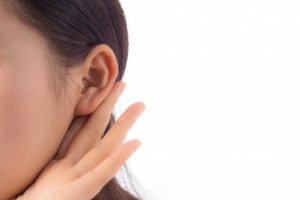In which ear buzzes: with what is tinnitus connected
 In which ear rings? Familiar phrase? The appearance of an unpleasant whistling or monotonous ringing in the auricle can seriously annoy a person and reduce the quality of life. However, even with such an unpleasant “special effect” the patient can learn to live and not give it much importance. Meanwhile, the causes of tinnitus are sometimes very serious and require timely treatment.
In which ear rings? Familiar phrase? The appearance of an unpleasant whistling or monotonous ringing in the auricle can seriously annoy a person and reduce the quality of life. However, even with such an unpleasant “special effect” the patient can learn to live and not give it much importance. Meanwhile, the causes of tinnitus are sometimes very serious and require timely treatment.
Why is ringing in the ears
Noises in the ears, which are not audible to people around them, are commonly called tinnitus in medicine. This condition is not a disease, but may be a symptom of various diseases. Usually, people experiencing tinnitus characterize it as high-pitched ringing.
According to statistics, from 5 to 8% of the inhabitants of the entire globe encounter such pathology.
Problem mechanism
Why does ringing in the ears appear? To answer this question you need to consider the anatomy of the ear.
Tinnitus can be caused by psychological and neurological factors.
Inside the canal is a tympanic membrane. She is in constant motion. Due to this, oscillations are created that are transmitted further to the auditory ossicles. Then the impulses reach the cochlea containing the lymphatic fluid. Waves are formed that activate the smallest hairs of the inner ear. The latter begin to pulsate and transmit such signals to the brain.
Failure of any link in this chain can lead to unpleasant noise interference. Most often, physicians ascertain problems precisely in the functioning of the hairs of the inner ear. They are very sensitive and subtle, so they are sensitive to loud sounds.
Doctors put forward several theories of the appearance of ringing in the ears. An unpleasant sound can be caused by neurological problems (if the brain misunderstands ear noise) or by psychological factors (pathology is caused by stress).
Causes and Symptoms
Various reasons can cause ringing in the ears, ranging from the most banal and ending with severe pathologies. Conventionally, they are divided into three groups.
Tinnitus may occur due to stress and anxiety.
Simple reasons
At the heart of the unpleasant ringing in the ears may be the following points:
blockage of the ear canal (for example, a sulfur tube, water, a foreign body);
experiences, stress;
improper ear brushing;
visiting concerts (rock bands);
work on production with a constant roar of machines;
taking certain medications;
change in atmospheric pressure;
a sharp decrease in body weight on the background of hard diets or malnutrition.
Ear diseases
The human ear consists of three sections. Pathology can affect any of them.
Outer ear
It is not recommended to treat the ear by yourself
The external division includes the auditory canal and the auricle. Tinnitus may indicate the following diseases:
External otitis. This is an inflammatory pathology caused by infection of the ear canal by microbes. With otitis, tinnitus is accompanied by the following symptoms: severe pain, redness of the skin, discharge of pus. Pathology is able to progress rapidly and cover the middle ear.
Furuncle. Unpleasant “pimple” in the auricle, which is popularly called boil, requires the mandatory intervention of the doctor. A purulent focus causes intoxication of the body and may cause deafness acquired. The boil is accompanied by unpleasant pain, fever, loss of appetite.
Mycosis. Fungal lesion of the auditory orifice most often develops on the background of reduced immunity. Unpleasant noise is accompanied by pain, a feeling of “stuffiness”, light cheesy discharge.
Exostosis. A rare pathology in which the bone grows in the initial zone of the ear canal. Such a “process” prevents the natural passage of a sound wave. There is a characteristic noise inside the ear. With this pathology a person is only worried about ringing. No other symptoms occur.
Middle ear
Otitis causes complications in the form of temperature
The middle ear region is often infected. Such a predisposition to diseases is caused by the structure of the department. On the one hand, the middle ear is limited to the eardrum. It is quite thin and easily inflamed in the case of otitis. On the other hand, the department is connected to the oral cavity by an Eustachian tube. Through it, microbes can penetrate directly into the epicenter of the organ of hearing.
The following pathologies lead to ringing:
Otitis medium section. This pathology may occur as a complication of external otitis or develop as a result of infection through the Eustachian tube. There are complaints of noise, “shooting” in the ear, hearing is significantly reduced. People experience excruciating, throbbing pain. There is an increase in temperature, there is a weakness.
Eustachyit Inflammation covers the Eustachian tube. Tinnitus is accompanied by the same symptoms that torment a person with otitis.
Myringitis. Infection affects the eardrum. For such a pathology is characterized by increased pain with loud sounds. From the outer passage is observed discharge of pus.
Injury of the eardrum.



